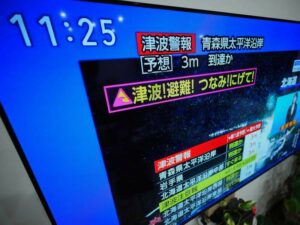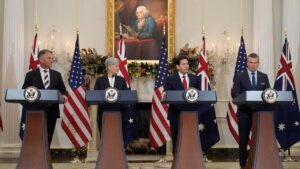
The Centers for Disease Control and Prevention (CDC) is facing an unprecedented crisis that threatens both its reputation and its ability to safeguard public health. This situation escalated dramatically during a Senate hearing on September 4, 2025, where Health and Human Services Secretary Robert F. Kennedy Jr. criticized the agency’s handling of the COVID-19 pandemic. Kennedy’s remarks followed his controversial decision to dismiss CDC Director Susan Monarez, prompting a chorus of calls for his resignation from members of the Senate Finance Committee.
Kennedy’s testimony highlighted a growing discontent with the CDC’s leadership and its recent decisions. He pointedly remarked, “the people at CDC who oversaw that process, who put masks on our children, who closed our schools, are the people who will be leaving.” This statement underscored the tension within the agency, which has been exacerbated by a series of leadership changes and departures.
The recent turmoil began shortly after Donald Trump assumed the presidency in January 2025, when his administration enacted significant workforce reductions at the CDC. Reports indicate that these cuts, which amounted to as much as 10% of the agency’s staff, have severely compromised its capacity to respond to public health emergencies. Trump’s administration also restricted communication between CDC employees and external organizations, including the World Health Organization.
Kennedy, appointed by Trump, intensified the crisis by dismantling established CDC institutions. One notable action was the replacement of all members of the Advisory Committee on Immunization Practices, which faced widespread criticism for appointing individuals with limited experience in vaccination research. Furthermore, more than 20 health organizations, including the National Medical Association and the American Academy of Pediatrics, expressed concerns about the negative health implications of these changes.
Monarez, who had been appointed CDC director in July, was seen as a beacon of scientific integrity amidst the upheaval. An accomplished scientist and public servant, she had initially been welcomed as a stabilizing force. However, her refusal to comply with Kennedy’s directives to dismiss key CDC leadership and endorse unscientific vaccine policies ultimately led to her dismissal on August 27, 2025. Her lawyers argued that only the president had the authority to remove her and emphasized her commitment to protecting public health over political agendas.
The agency’s challenges were further compounded by a tragic incident on August 8, when a gunman, reportedly angry over COVID-19 vaccinations, opened fire at CDC headquarters, resulting in the death of a police officer. Many health professionals linked this violence to the misinformation propagated by Kennedy, amplifying concerns about the increasing threats faced by CDC employees.
Public trust in the CDC has been significantly shaken. According to a poll conducted in April, 44% of U.S. adults indicated they would have less confidence in CDC guidance under the new leadership. This erosion of trust poses a substantial risk to the United States’ ability to respond effectively to future public health crises.
In light of the leadership void and conflicting vaccine recommendations, reputable organizations are stepping in to provide guidance. The American Academy of Pediatrics and the American College of Gynecology have begun issuing vaccination schedules that diverge from CDC recommendations for the first time. Additionally, some states, including California, Oregon, Washington, and New Mexico, are formulating their own vaccination guidelines.
The CDC’s longstanding role as a national public health leader is now under threat. Public health experts warn that the agency’s ability to coordinate critical health responses, such as those required for infectious disease outbreaks, is being undermined. The fragmentation of authority and the rise of misinformation complicate efforts to maintain a unified public health strategy.
Health professionals are increasingly concerned about the implications of the CDC’s weakened status. Accurate, reliable health statistics and evidence-based guidelines are essential for public health educators and clinicians. The COVID-19 pandemic highlighted the necessity of a cohesive emergency response and the need for rapid vaccine distribution.
As the CDC grapples with internal turmoil and external pressures, its future as a preeminent public health institution is uncertain. The agency has served as a cornerstone of public health in the United States for over eight decades, but its current trajectory raises critical questions about its ability to fulfill its mission of protecting the nation’s health.







